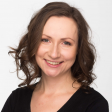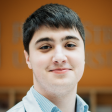The Novel Morbid Genes Discovery Strategies webinar is organised by the Doctoral School and intended for doctoral students and researchers who work in the field of human genetics. The webinar will take place on 3 March.
The rapid development and application of next generation sequencing (NGS) techniques over the last decade have lead to the identification of hundreds and thousands of genetic variants and novel morbid genes. However, there are still lots of “hidden treasures“ within NGS data that are waiting to be discovered. In this seminar, we will give an overview of the most common strategies for the identification of novel morbid genes for a single patient (N=1) cohort, for small and large patient cohorts, as well as for both common and rare disorders. The seminar will include a series of short theoretical lectures and a hands-on training at the end using a real world examples from clinical practice.
Join the Zoom session
ID: 951 4461 3938
Passcode: 097792
- Programme (provisional)
15:00–15:10 The definitions of morbid genes 15:10–15:45 An overview of the gene discovery strategies with examples 15:45–16:15 Bioinformatics gene discovery approaches 16:15–16:45 Databases for the candidate gene discovery approach 16:45–16:55 Questions and answers 16:55–17:05 Break 17:05–17:15 Summary of the possible gene discovery strategies for N=1 and a presentation introducing the clinical case for the hands-on training 17:15–17:40 Hands-on training 17:40–18:00 Discussion of the clinical case and possible gene strategies
Lecturer
Dr. Baiba Vilne has more than 10 years of experience in bioinformatics for personalised medicine, analysing genomic data (arrays, WES/WGS) transcriptome and microbiome data. Her major focus has been integrative multi-omics analysis, starting from pair-wise integrations (e.g., expression quantitative trait loci; eQTLs), followed by re-construction of gene co-expression networks/modules, linking those to the life-style and environment data.
Dmitrijs Rots is a researcher at Radboud University Medical Center (Netherlands) where he is currently a doctoral student in human genetics. Rots is a graduate from the RSU Faculty of Medicine, and has been working in the field of molecular genetics since 2013. Rots started working with next generation sequencing (NGS) data in 2018 when NGS bioinformatics analysis and clinical data interpretation were introduced at the RSU Scientific Laboratory of Molecular Genetics. Rots’ research interests are rare hereditary diseases.





